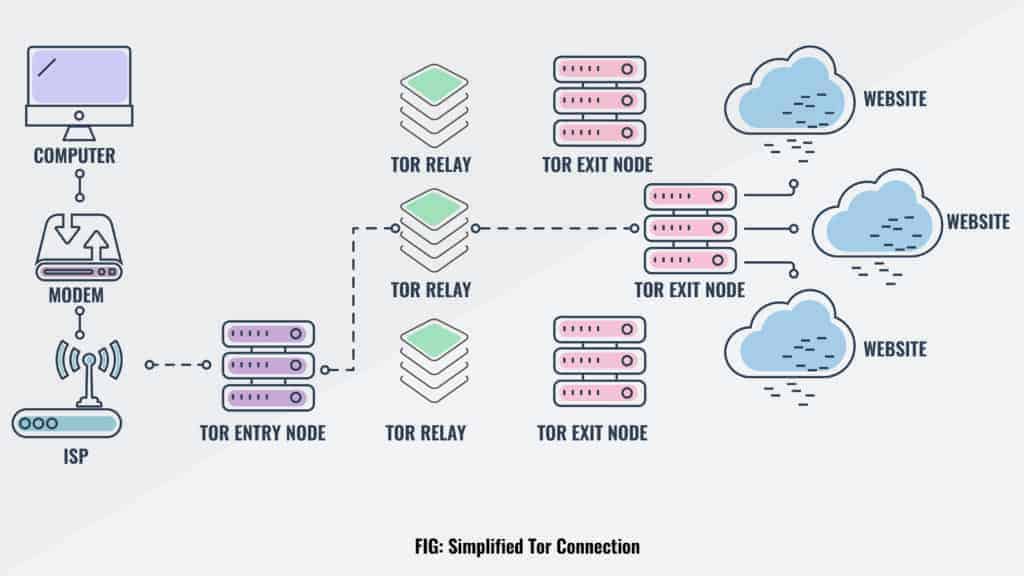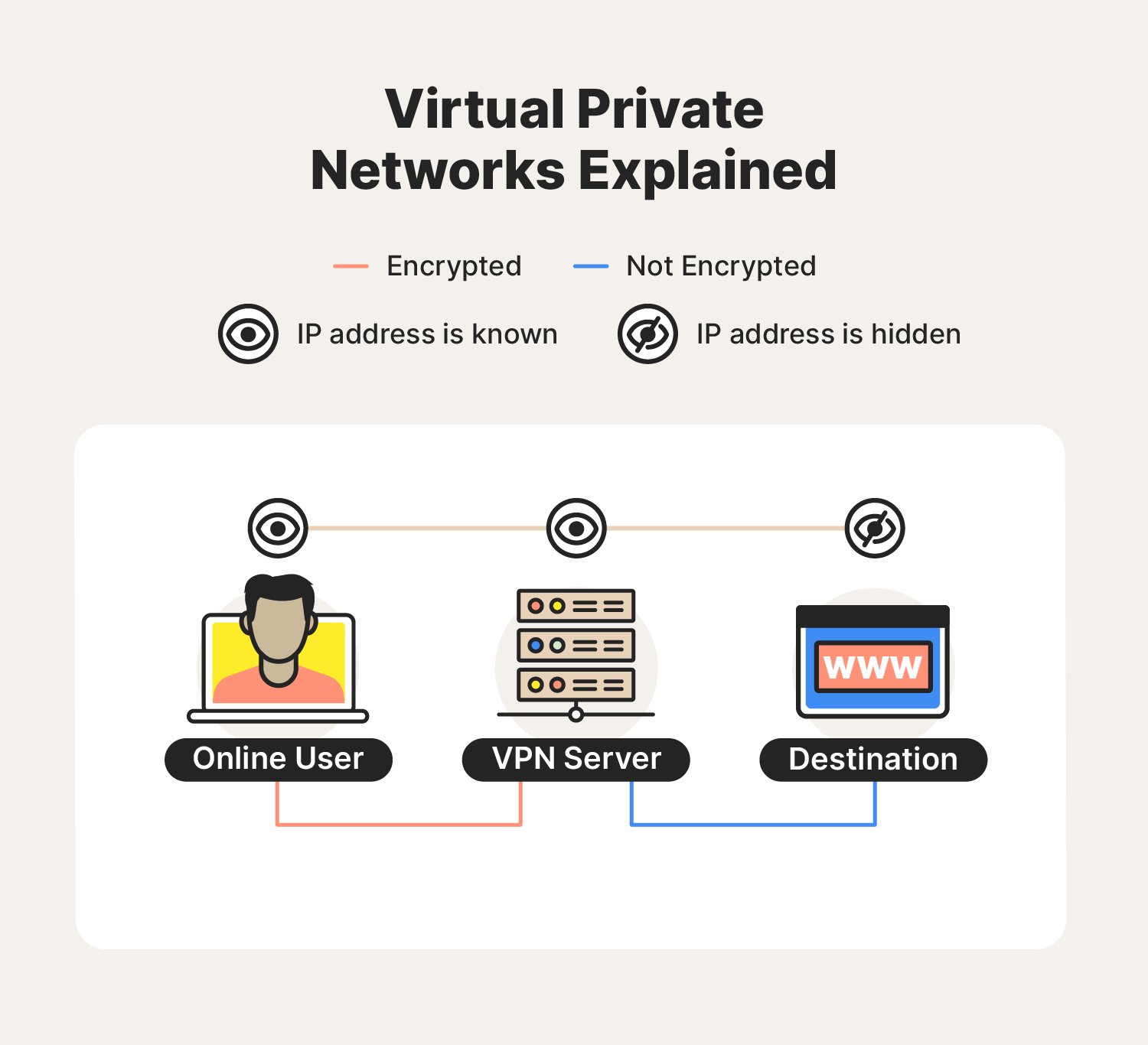Featured
Table of Contents
Tor Vpn Explained – Why, How And When To Use It
In practice, Tor Internet browser is totally free, while VPNs are usually paid, which makes your option easy? You need to just opt for Tor and stop. Well,? Today, I desire to provide you a complete comparison of Tor vs VPN and describe what they represent, their differences, use cases, and far more.
To begin off this Tor vs VPN comparison, I initially require to describe what these tools represent. Providing you a clear definition of what they are and how they work will help you understand their differences, so pay close attention. Starting with Tor, this term is an abbreviation for "The Onion Router".
Nord, VPN It's vital to bear in mind that this is a tool for privacy and not personal privacy I'll describe why quickly. When it concerns Tor nodes, they're held and kept by volunteers, so we're speaking about a decentralized service, rather than a centralized service which is the case with a VPN.
The excellent side is privacy due to the fact that nodes aren't run by any particular companies, so you aren't running the risk of storing and logging your surfing activity by that business. On the other hand, the security of each node depends upon the person that's preserving it. As such, a node can be compromised by a hacker, let's say, who will have the ability to trace your connection.
Tor Vs Vpn: What They Do And Which Is Better?
The entry node is more vital due to the fact that, when connecting to Tor, your ISP can see that you did that through the entry node. That's why many people utilize a VPN with Tor to encrypt their connection and avoid the ISP from seeing their Tor usage. We'll discuss that later on in this Tor vs VPN post.

Its "The Onion Router" name comes from the truth that it peels the layers of encryption similarly to the onion layers. And dark web sites likewise have the domain ". onion", which isn't a coincidence. Listed below, I described how Tor works and the process of securing and decrypting your demands.
When you link to the Tor network and you send a request, you get triple file encryption for each node. There's the entry node (typically called the guard node), the middle node (or middle server), and the exit node. Tor sends your request to the entry node, which gets rid of the very first layer of file encryption.
The entry node can't read the encrypted content of the demand, so it still can't trace your activities inside the Tor network. The traffic is then sent to the middle node, which removes another layer of file encryption and sends the encrypted traffic to the exit node. The exit node peels the last layer of file encryption, which is why it can see the encrypted request however it can't identify who is sending it because it can't see your IP address.
Vpn Vs Tor Vs Proxy Servers In 2023: Stay Anonymous ...

If you're looking to stay confidential online and you're considering utilizing Tor, I think it's good to understand more about its benefits and disadvantages, so inspect them out below. The triple layer of file encryption makes sure 100% privacy when utilizing Tor Browser It's totally free and does not need any memberships It's a decentralized, open-source network with no tracking and monitoring Tor Internet browser is capable of going on the dark web The entry node can read your IP address and make it noticeable to your ISP when utilizing Tor Slows down your internet speed considerably due to innovative file encryption Nodes are run by volunteers who might not do a fantastic task at ensuring they're secure You can't choose an IP address from a specific country, so you can't bypass geo-blocks Tor Browser does not work on all platforms Wondering what are the distinctions in between Tor and VPN? Well, for the start, a VPN is a tool for personal privacy, which indicates it'll conceal your identity and prevent anybody from seeing who you are.
VPN services offer countless servers in various countries, so they enable you to connect to any of them easily and get an IP from the nation you require. Then, each demand you send is routed through a VPN tunnel where it is sent out to a VPN server which decrypts it and links you to the site you desire.
g. the site you're visiting The exact same procedure applies to traffic originating from the network from your device. It's crucial to explain that a while Tor (Tor Browser) is focused on the part of the connection in Tor Browser. This is why a VPN is ideal for torrenting, for instance, while Tor secures just the part of the connection sent out through the Tor Browser.

With a single layer of file encryption, the VPN actually goes through less steps to secure your connection which has a huge benefit much faster speeds and better efficiency. Let's talk about the pros and cons of VPNs and see what they do well and what are their drawbacks. They're really simple to use VPNs can be installed on every platform (Windows, i, OS, Linux, Android, mac, OS, routers,) You can pick an IP address from a specific country, letting you bypass geo-restrictions There's a higher degree of accountability since you know who owns the VPN servers VPNs are very quick and exceptional suppliers use 10 Gbps servers Advanced security functions like a kill switch, ad blocker, and Multi, Hop Total personal privacy, thanks to advanced encryption and the ability to hide your original IP It's a paid service which can be a problem for budget-constricted users Some VPN services are understood for keeping logs (Hola VPN, Ninja, VPN, Betternet,) You should choose a trustworthy VPN that has a no-logs policy because you're handing over your privacy/anonymity to that business Now that you what Tor and VPN are, I feel the requirement to rapidly summarize their distinctions simply to ensure you understand whatever well.
Latest Posts
Best Vpns For Remote Workers & Freelancers In 2023
Nordvpn: Vpn Fast & Secure 4+ - App Store
The Best Vpns For Small Business 2023 - All About Cookies